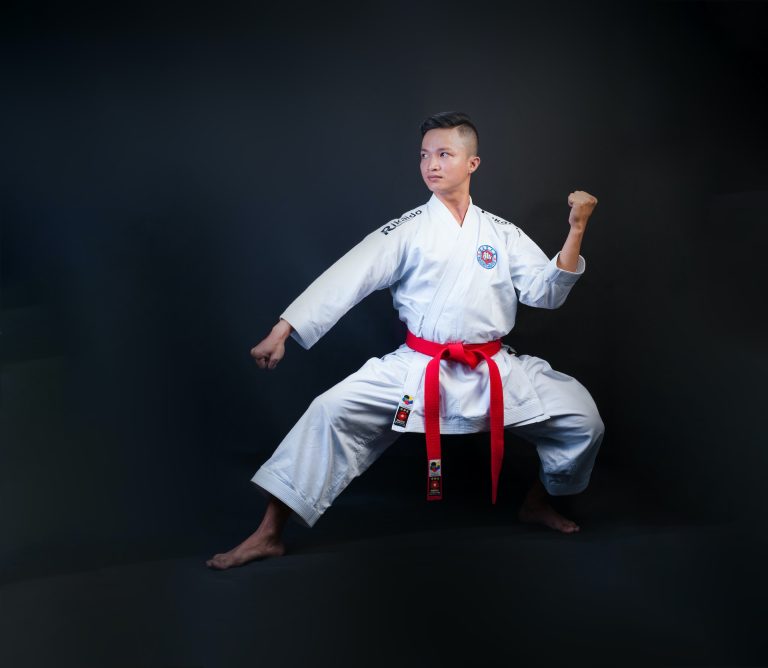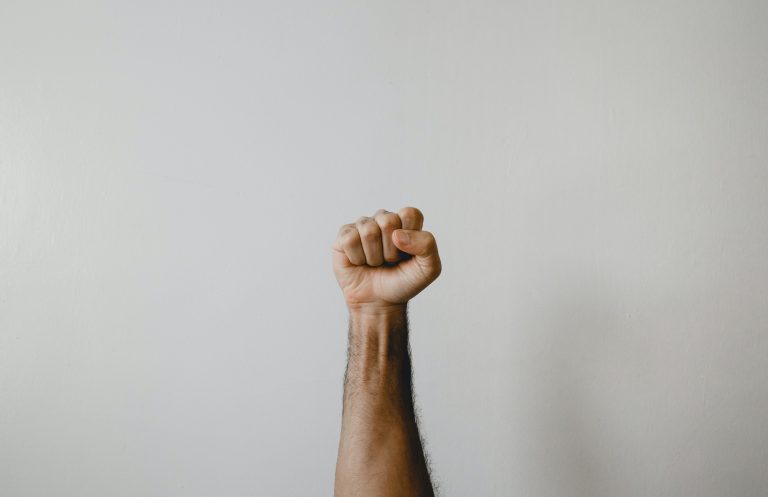How Does Karate Help You Mentally?
Karate is a Japanese martial art that involves self-defense techniques using elbows, knees, kicks, punches, and other striking movements. It is not only a physical activity but also a mental exercise that can help individuals develop self-control, discipline, and confidence. In karate, mental and physical strength go hand in hand. In this blog post, we will explore how karate helps you mentally.
Improves Focus and Concentration
Karate requires participants to be fully present and engaged in the training. Unlike other sports where you can get by with just relying on your physical abilities, in karate, you need to be mentally engaged and focused. Training involves executing precise and complicated techniques with proper form, and that requires a high level of concentration. The more you practice, the more you develop your concentration and focus to perform at your best. This mental discipline can be applied to other areas of life and helps you become more productive and efficient.
Builds Self-Discipline
Self-discipline is one of the most critical traits you can develop in your life. It enables you to make sacrifices, stay motivated, and set and achieve goals. In karate, you must adhere to a strict training regime, including regular classes, intense workouts, and following rules and regulations. The discipline needed to partake in this sport enables individuals to develop better time management skills, personal responsibility, and self-control. Karate teaches individuals to overcome obstacles by pushing past their limits, giving them the drive to achieve their goals off the mat as well.
Boosts Confidence and Self-Esteem
Karate gives you the confidence to know that you can defend yourself in real-life situations. As you improve your skills, you become more confident and self-assured, which translates into other areas of your life. Karate provides you with a sense of self-reliance that can be particularly beneficial in stressful situations.
Furthermore, karate is not solely about winning matches but developing the mental and physical strength needed to handle adversity. One of the goals of karate is to create well-rounded individuals who are well-versed in physical abilities and mental fortitude. Achieving your goals in karate, no matter how small, can boost your confidence and self-esteem, which can last a lifetime.
Develops Emotional Resilience
Emotional resilience is the ability to adapt to stress and cope with adversity. In karate, you learn to handle pressure and stress from in-the-moment sparring, performing techniques and katas, and knowing your limits. Through practice, you develop the ability to focus through the stress and increase your emotional resilience—the same skills essential to bounce back from life’s challenges.
Additionally, karate helps you develop a sense of responsibility for your actions and attitude. With the realization of the consequences of poor choices or poor behavior, individuals develop a sense of self-accountability. Karate’s emphasis on discipline and following the rules further enhances individuals’ sense of responsibility, helping them make better choices and decisions.
Reduces Stress and Anxiety
Karate training can provide a healthy outlet to release tension and stress. Exercise is a known way to improve mental health and reduce stress, and karate is no exception. While in the dojo, individuals can let go of their worries and focus on the training at hand. Due to the endorphins released through exercise, karate training can also enhance your mood and reduce anxiety.
Besides, proper form and movement can become meditative when done correctly, allowing individuals to express themselves freely without judgment or worry. Likewise, interacting with other passionate and driven individuals tied with the sport can produce a sense of belonging and community reducing feelings of loneliness or stress.
Enhances overall mental Wellness
Karate’s physical components can increase mental wellness through stretching and conditioning, alleviating stress on the body, and increasing endorphins that boost mood. Simultaneously, its mental components can increase mental toughness, mindfulness, focus, and discipline. Karate prioritizes positive attitudes and respect towards instructors and fellow practitioners, continuously reinforcing the attributes of a healthy mindset, social behavior, and community culture. In conclusion, incorporating karate practice in one’s lifestyle can increase one’s mental wellness immensely.
Final Thoughts
In conclusion, karate provides an excellent opportunity to develop mental skills such as concentration, self-discipline, emotional resilience, and confidence. As seen above, karate can help in different areas of your life through the development of essential skills. With proper training and perseverance, karate can be an excellent tool for mental improvement and overall wellness. If you are considering learning karate, taking a chance on this activity can be one of the best decisions you make for your overall well-being.
How Does Karate Help You Mentally?
Karate is an ancient and traditional martial art that originates from Okinawa, Japan. It is not only a physical activity but also a mental discipline that helps in developing focus, self-discipline, and self-confidence. In this blog post, we will dive into the most frequently asked questions regarding how karate helps you mentally and the benefits it provides.
What mental benefits can you get from practicing karate?
Practicing karate provides numerous mental benefits that can help you in various aspects of your life, such as:
Self-discipline
Karate training follows strict rules and regulations that encourage self-discipline. Practitioners need to adhere to the practice schedule, training, and techniques. Karate training develops self-control and enhances the practitioner’s ability to make rational decisions.
Focus and Concentration
Karate involves techniques that require a high level of focus, concentration, and awareness. Practicing karate improves mental clarity and strengthens the ability to focus on specific tasks.
Self-Confidence
Karate training builds confidence as it teaches self-defense techniques, enables you to overcome challenges, and pushes you out of your comfort zone. Practicing karate helps individuals to gain confidence in their abilities and become self-assured.
How does karate help reduce stress and anxiety?
Karate can help reduce stress and anxiety in various ways:
Meditative Properties of Karate
Karate involves techniques similar to meditation, such as mindfulness, deep breathing, and visualization, that can help reduce stress levels.
Reduced Cortisol Levels
Exercising through Karate Practice can help naturally reduce cortisol levels in the body. Cortisol is a hormone that the body produces during times of stress. Reduced cortisol levels lead to less anxiety and less overall stress.
Improved Emotional State
Karate training can help promote relaxation, mental clarity, and a positive outlook. As a result, individuals become more resilient to emotional stressors and can improve their emotional state.
Can Practicing Karate Reduce the Risk of Depression?
Yes, practicing karate can potentially reduce the risk of depression. Studies have shown that regular participation in competitive martial arts has been effective in reducing the risk of depression.
Practicing karate also promotes the release of endorphins, which are the body’s natural „feel-good“ chemicals. Endorphins are produced during exercise to help reduce pain and promote feelings of euphoria.
How Can Karate Training Help Improve Memory and Cognitive Abilities?
The practice of karate involves various techniques that improve cognitive abilities such as memory, reaction times, and problem-solving skills.
Bilateral Brain Stimulation
Karate involves various movements that require activating both sides of the brain. Practicing Karate uses repetitive movements that create a symmetrical development of the left and right sides of the brain resulting in the improvement of cognitive function.
Consistent Repetition
Karate training involves constant repetition of techniques, which can help improve memory retention and recall.
How to Benefit Mentally from Practicing Karate
Karate is a form of martial arts that originates from Japan, and is popular all over the world. Apart from its physical benefits such as improving coordination, flexibility, and strength, karate is also well known for its mental benefits. In this blog post, we’ll discuss how practicing karate can help you mentally, and provide a step-by-step guide on how to benefit from this popular martial art form.
Step 1: Understand the Mental Benefits of Karate
Before delving into how to extract maximum mental benefit from practicing karate, it’s essential to understand what these benefits entail. Karate is not only a physical form but it also trains the mind by developing focus, discipline, and the ability to respond to stress.
According to research, karate practitioners can gain a better understanding of their emotions, and develop skills to manage stress and anxiety more efficiently. Practicing karate also helps to improve self-esteem and overall self-worth, making individuals more confident in their abilities.
Step 2: Establish Your Goals
To benefit mentally from karate, it’s crucial to establish your goals before beginning the process. Do you want to feel more confident, alleviate stress, or develop discipline? Whatever your goals may be, writing them down will help you understand what you want to achieve from your karate practice.
Step 3: Find a Karate Studio and Instructor
The next essential step when starting karate is to select the right studio and instructor. It would be best if you looked for a dojo that offers a training program that aligns with your goals.
A good instructor will help you refine your practice by tailoring exercises that address your individual needs. Speak with potential karate instructors and get to know their approach to teaching and practice. This step is essential to set you on the right path and ensure your progress while building your confidence in your abilities.
Step 4: Begin Your Practice
Now that you have your goals, your dojo, and your instructor in place, it’s time to begin your karate practice. Initially, it can feel challenging and intimidating, but what’s vital is to remain committed and persistent.
When practicing karate, begin with the essential techniques such as stances, strikes, and kicks, and gradually progress to more advanced techniques. As you grow in your practice, explore the deeper aspects of karate such as meditation and self-reflection.
Step 5: Adapt Karate into Your Daily Life
Karate’s benefits extend beyond the dojo. Incorporating the principles and values of karate into daily life can reinforce the mental benefits and keep you in a healthy mental state. The principles of karate, such as humility, respect, and discipline, can serve as guidelines for day-to-day life.
Practicing karate as a form of exercise can stimulate endorphins that reduce stress and make individuals more resilient to the hardships of life. Consider integrating karate in your daily routine, even when you are not attending a class, and applying the values and discipline learned in the dojo, in daily life.
Conclusion
Practicing karate offers countless mental benefits, and by following the steps above, you can maximize these benefits to achieve clarity of mind, stress reduction, and overall self-improvement. With a clear understanding of your goals, the right studio and instructor, a commitment to regular practice, and the incorporation of karate principles into your daily life, you can go from being a karate beginner to experiencing significant rewards in your mental state. Start your mental karate journey today and open up a path to healthier, more balanced living.
Inhaltsverzeichnis






